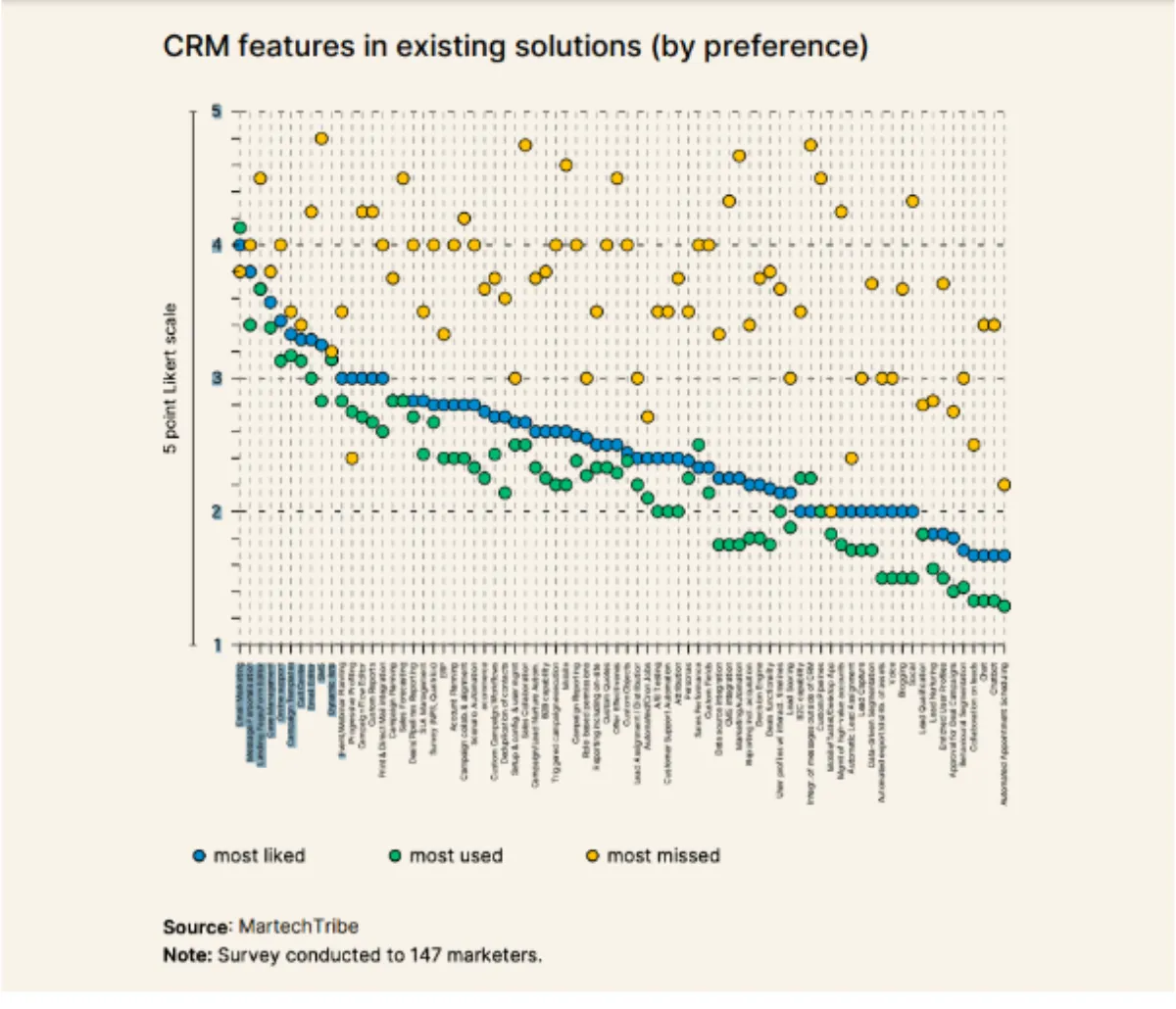
Looking ahead: The great marketing technology transition
As consumer expectations continue to rise, it is becoming increasingly difficult for brands to distinguish themselves. Markets are increasingly crowded, with pricing and products becoming secondary to customer experience as a brand differentiator.
The imminent arrival of 5G and the proliferation of emerging technologies like generative AI are reshaping the way consumers engage with brands and make their purchasing decisions. It's no longer adequate for businesses to merely understand consumers; they must also be able to influence their actions effectively.
Businesses hoping to remain competitive must look at upgrading or replacing their legacy enterprise resource planning (ERP), CRMs, marketing automation platforms and supply-chain systems with next-generation cloud-based platforms designed to support rapid innovation. The dynamics of modern consumer expectations demand a technological shift towards modern and cloud-native Customer Engagement Platforms that can deliver to the next generation of customer expectations.
Why the transition matters
The pandemic catalysed digital transformation at many global enterprises. Over 69% of leaders said social and economic disruption were accelerating their digital business initiatives, a 2020 Board of Directors survey by Gartner revealed. Many said their business changed more in the first few months of the outbreak than it had in the previous decade.
In the rush to digitise their offerings, however, many businesses found themselves layering up new technologies or buying separate plug-ins to add onto the ones already being used to transform their offering in response to new customer demands. This "more is better" notion in marketing technology results in chaotic, 'Frankenstein' type martech stacks comprised of haphazard and inefficient tools, which result in overspending, underutilisation and poor ROI.
As we head into the new year, renewed scrutiny of marketing budgets will create a transition away from this model, instead focusing on what is proven to work and creating measurable returns.
Top requirements from marketing tech
Customer experience is the key brand differentiator for businesses hoping to remain competitive in the market today. Therefore, tools that help teams enhance the overall experience and can deploy consistent, personalised one-to-one experiences at scale must be a key priority for leaders when shifting their technology infrastructure.

Looking at the top 10 features most liked and most used in CRM systems today in the graph below - seven of them are closely related to customer experience: Email Marketing, Message Personalisation, Case Management, Online Support, Campaign Templates, Call Center Email Editor and SMS.
The essence of successful modern marketing hinges on personalised messaging. Pendula's focus on developing modern tools means it excels in this realm, offering sophisticated segmentation, AI-driven insights, and behavioural analysis capabilities. This enables businesses to craft highly targeted and personalised messages, fostering deeper connections with customers and boosting engagement and loyalty.
The road to future growth
Legacy systems often struggle to keep up with the rapidly evolving digital landscape. Next-gen, cloud-native technology, in contrast, has the agility to adapt to diverse industries, allowing businesses to pivot swiftly and cater to changing customer needs and preferences on the spot.
Having a modular structure, user-friendly interface, and flexible integrations empowers business users to navigate these types of tools themselves and start leveraging the capabilities without any downtime or taking away from the developer and IT resources - meaning customer and market changes can be actioned immediately, campaigns can be implemented faster, and communications can be tweaked and customised effortlessly.
Businesses gearing up for growth require scalable solutions that can handle increasing volumes of communication without compromising quality or reliability. Pendula's infrastructure is designed to scale effortlessly whilst prioritising personalisation and ensuring consistent performance even during high-demand periods - thus future-proofing businesses for expansion.
The era of customer engagement and personalised experiences
We have entered an era where customer experience and engagement reign supreme, and businesses will need to reevaluate their digital communication strategies to compete. The shift from legacy systems to next-gen, cloud-based technologies is not merely an upgrade; it's a strategic investment in long-term growth.
By taking a critical look at your organisation's current marketing capabilities, businesses can scale and propel their customer engagement strategies forward sooner. This will be a compounding advantage, allowing more time for the brand to foster meaningful relationships, drive conversions, and ultimately, achieve sustainable growth in 2024 and beyond.

